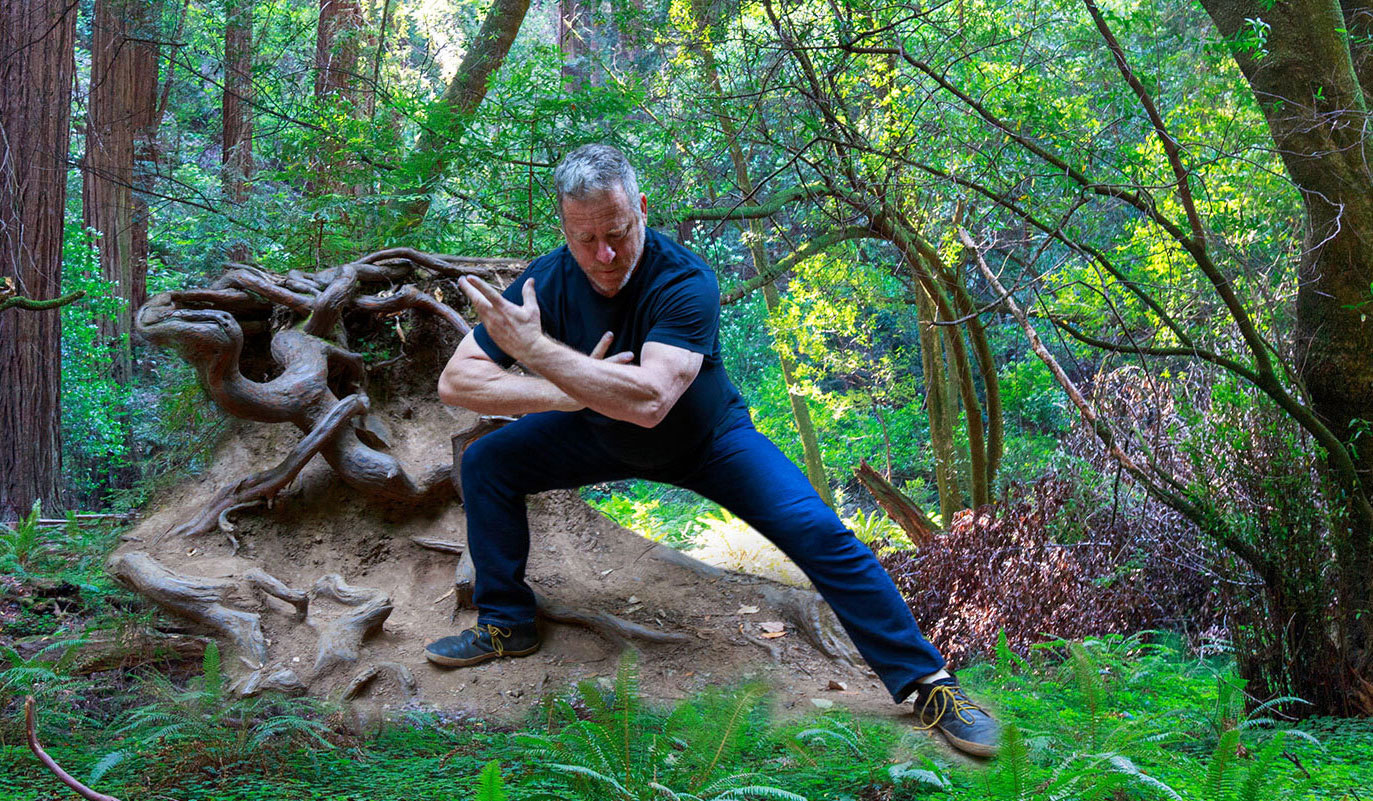Does Silence Scare You?

Ponder these questions and answer them honestly:
- When you wake up in the morning or return home at the end of the day, do you immediately turn on music or the TV if no one is there?
- In your car, do you always feel the need to turn on the radio or call a friend?
- When you’re hanging out with friends or family, do you feel uncomfortable when there are pauses in the conversation?
- Would you choose a yoga class with music and instructions over a silent meditation session any day of the week?
If you answered yes to any or all of these questions, you might—like most of us—experience some discomfort with silence. Silence can be a little scary.
Why? For one thing, we’re not used to it. “Our culture tends to offer a non-stop flow of entertainment, conversation, and concentration, from waking to sleeping,” says Steven Leonard, Lead Faculty member at Kripalu. “It’s rare to have more than a few minutes each day to simply relax, rest, reflect, even daydream. The more unusual those kinds of moments are, the more uncomfortable they become for us.”
Maybe that’s why, in a study published in the journal Science, researchers at the University of Virginia found that 25 percent of women and 67 percent of men preferred to give themselves electric shocks rather than sit alone doing nothing in a bare laboratory room for 15 minutes, without access to external distractions.
What Lies Beneath
Silence is scary not just because it’s unfamiliar, but also because it opens the door to a whole bunch of thoughts, sensations, and emotions that noise keeps at bay. As Steven puts it, silence can be like “getting locked in a room with your harshest critic.”
“Many of us have a world of feelings inside that have not been felt,” says Cristie Newhart, Dean of the Kripalu School of Yoga. “We may feel unloved or alone; we may feel sadness or grief. The outer world is a great distraction to those feelings and when we’re silent, they show themselves.”
Turning down the volume also leaves our “monkey minds” free to incessantly jump from one thought to another—strategizing, worrying, ruminating over the past, and projecting ourselves into the future.
Ayurveda describes imbalances of the mind as rajas—active, fiery, and anxious—or tamas—dull, lethargic, and depressed. “Depending on one’s proclivities, the mind will go rajas or tamas,” explains Erin Casperson, Dean of the Kripalu School of Ayurveda. “Most of our thought patterns are familiar and repetitive.”
A Tool for Surrendering to Silence
How do we manage the discomfort, anxiety, or fear that silence can bring up? “The best tool I know is the breath,” Cristie says. “A few moments of deep, conscious breathing anchors attention and allows silence to emerge.”
The foundational Kripalu practice of BRFWA (Breathe, Relax, Feel, Watch, Allow). These five steps can help the silence-averse manage those moments when quiet feels like too much to bear.
- Breathe down into the belly and fill up the lungs. Pause at the end of the inhale, and then exhale completely, softening the abdomen.
- Relax the body. If your shoulders are raised, drop them. If your hands and jaw are clenched, let them go. If your belly is tight, loosen it.
- These actions may trigger feelings or sensations. If so, feel them.
- Observe these feelings and sensations without judgment.
- Allow the feelings to move through you without resistance. Cry if you need to. Laugh if that feels natural. Scream if you’re someplace where you can. Expressing your feelings forcefully isn’t the point, however. Allowing them to move through you is.
Making Friends with Silence
As you begin to get more comfortable with silence, you may notice that you actually like it. Silence may feel like a refresher at the end of a long day. Rather than increase our anxiety, silence may actually assuage it. You might start creating intentional silent pauses in your day—or even take a silent retreat. And family, friends, and co-workers might find this a little strange, or even threatening.
“It’s helpful to remember when we take on a new habit or practice that our loved ones and friends worry about the impact the change may have on their lives,” Cristie says. “When asked about my practices, I keep my sense of humor and try not to take their questions or comments personally.”
While Erin’s family initially found her annual meditation retreats a little “weird,” they now understand that setting a period of time aside to be silent is essential for her well-being. “I just explain that my job and life are filled with lots of talking and that silence is a refuge,” she says. “I also explain it as care for my nervous system. I remind people of what it was like when we were kids and there were no iPhones and we were at ease with very little sensory stimulation. My family knows that, for me, retreats are about getting simple in a life that’s incredibly complex.”
As you begin building your silence muscles—whether through spending your mornings television- and music-free, taking silent commutes to work, or going on a daylong or weeklong silent retreat—your self-awareness may increase and your stress levels lower. And you may begin to realize, as Cristie emphasizes, that “our roadblock to silence is merely our lack of understanding that silence is actually our natural state. We don’t create it; it just is.”


